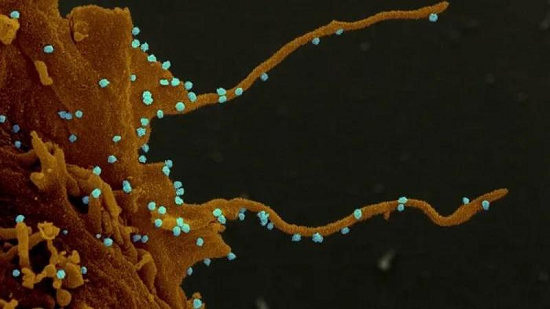Common herbal plants like holy basil leaf and sesame seed have therapeutic effects against inflammation
10/05/2020 / By Evangelyn Rodriguez

Inflammation has been linked by many studies to the development of chronic diseases. Under normal circumstances, inflammation facilitates the elimination of pathogens and promotes tissue repair and recovery. But depending on the severity of this immune response and whether it is local or systemic, inflammation can trigger metabolic and neuroendocrine changes. These changes enable the body to conserve energy and divert more nutrients to the immune system while it deals with the infection. But as a consequence, the body begins to manifest energy-saving behaviors, or “sickness behaviors,” which include sadness, fatigue, anhedonia (inability to feel pleasure), sleep disorders and reduced libido and food intake. These behaviors are accompanied by health issues, such as increased blood pressure, insulin resistance and dyslipidemia.
Because of the huge impact of chronic inflammation on human health, scientists consider it an important target of therapeutic and disease-preventive strategies. In a recent study, researchers at the University of Central Florida evaluated the anti-inflammatory activities of four botanicals widely used as medicines. They reported that extracts derived from holy basil, sesame seeds, long pepper and cubeb pepper can successfully reduce inflammation and prevent other events that could lead to serious diseases.
The researchers discussed their findings in an article published in the Journal of Medicinal Food.
Holy basil, sesame seeds, long pepper and cubeb pepper are potent anti-inflammatory agents
According to the researchers, plant extracts have been gaining traction recently for their potential as anti-inflammatory agents. Holy basil, sesame seeds, long pepper and cubeb pepper are good examples of botanicals with suspected anti-inflammatory activities. (Related: What’s an anti-inflammatory diet? Understand its benefits and which type is right for you.)
To confirm if they do have the ability to reduce inflammation, the researchers obtained extracts from these four plants and tested their effects on monocyte-derived macrophages (MDMs). After exposing MDMs to the extracts for two hours, they subjected the cells to lipopolysaccharide (LPS, a bacterial endotoxin) stimulation for 24?hours and analyzed the expression of pro-inflammatory genes.
The researchers also studied the effects of the four extracts on the oxidation of low-density lipoprotein (LDL) by enzymatic (myeloperoxidase) and non-enzymatic (copper) reactions. LDL oxidation occurs when bad cholesterol reacts with harmful free radicals, producing oxidized LDL. This type of cholesterol is implicated in atherogenesis — the formation of fatty plaques in the arteries.
The researchers reported that all four extracts reduced LPS-induced inflammation and inhibited LDL oxidation. Using liquid chromatography coupled with high resolution mass spectrometry, they analyzed the phytochemical composition of each extract. The following compounds are among the wide range of beneficial chemicals they identified in the extracts:
- Short-chain organic acids
- Phenolic acids and their derivatives
- Piperine and its structural homologues
- Eugenol
- Rosmarinic acid
- Flavonoids and their glucosides
These extracts all have anti-inflammatory properties, according to numerous studies. The researchers believe that their findings could serve as a guide for future studies on natural medicines, especially those that could be useful for consumers and industries that make use of bioactive compounds.
Other foods that can fight inflammation
Certain foods are known to trigger or promote inflammation. Examples of these include red meat, refined carbohydrates, fried foods, fatty foods and sugary foods and beverages. Fortunately, there are also foods that can fight inflammation and help prevent chronic diseases. These foods are mostly plant-based and are rich in natural antioxidants and anti-inflammatory agents. Here are some examples of these foods:
- Tomatoes
- Olive oil
- Green leafy vegetables (e.g., spinach, kale and collards)
- Nuts like almonds and walnuts
- Fatty fish like salmon, tuna and sardines
- Fresh fruits like blueberries, apples, cherries and oranges
Chronic inflammation is a dangerous event that can lead to the development of chronic diseases. But the good news is, there are plenty of superfoods that can help reduce inflammation. To boost your nutrient intake and overall protection from diseases, adopt an anti-inflammatory diet rich in plant-based foods like holy basil, long pepper, cubeb pepper and sesame seeds.
Sources include;
Tagged Under: alternative medicine, anti-inflammatory, cubeb pepper, food cures, food is medicine, functional food, herbal medicine, Herbs, holy basil, Long Pepper, natural cures, natural medicine, phytonutrients, prevention, remedies, research, sesame seed




















